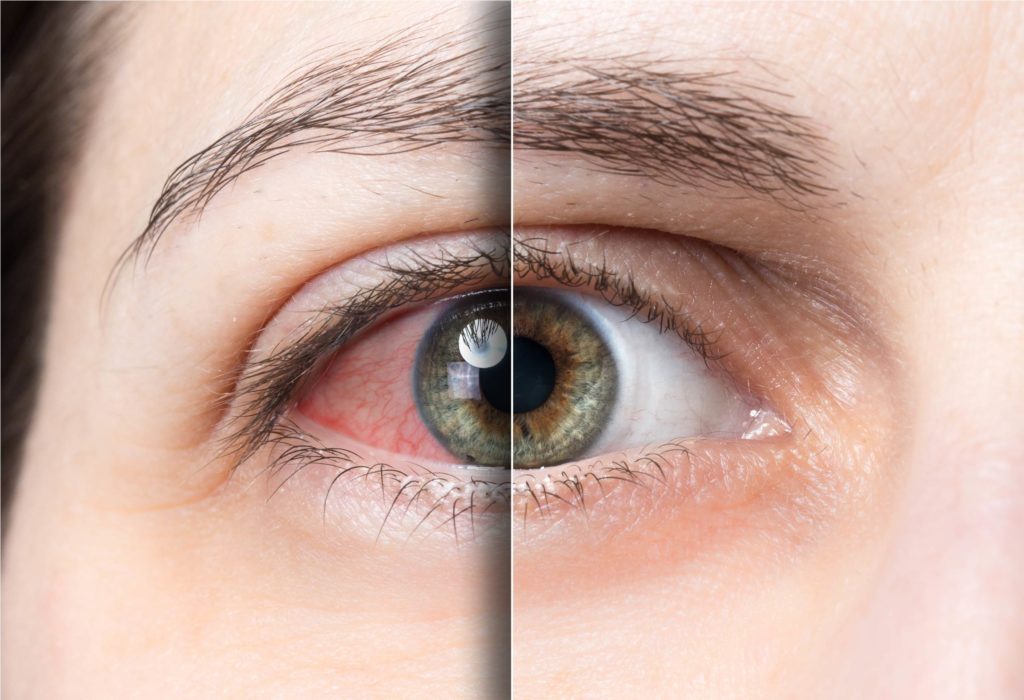Dry eye is a condition in which a person does not produce enough tears to moisturize the surface of the eye. Due to this lack of lubrication, your eyes might feel dry or itchy and you may experience blurred vision. It is essential to have proper moisture as it prevents eye infections and injuries.
Dry eye symptoms
If you have dry eye, you might experience the following symptoms:
• Blurred vision: You may experience blurred vision and find it especially difficult to drive at night.
• Eye tiredness: Your eyes may fatigue quickly and feel tired and heavy.
• Eye redness: Because of decreased tear production, your eyes can become irritated resulting into eye redness.
• Dry, itchy feeling in your eye: Due to less moisture, you could experience a gritty, stinging sensation in your eye.
• Light sensitivity: Having dry eyes can increase the chances of hypersensitivity to light.
• Stringy mucus in your eye: There may be a stringy discharge from your eye, a clear sign of dry eye syndrome.
• Difficult or painful to wear contact lenses: You are likely to experience pain while putting on and wearing contact lenses for long periods of time.
Dry eye causes
Dry eyes can be caused by several different factors including:
• Ageing: Dry eye is more common if you are above 50.
• Gender: Women are at a higher risk of developing dry eye syndrome due to hormonal changes, pregnancy, taking oral contraceptives, and menopause.
• Medical conditions: Some medical conditions such as diabetes, allergic eye disease, lupus, thyroid disorders, rheumatoid arthritis, and vitamin A deficiency can cause dry eye syndrome.
• Medicines: Taking certain medications such as antidepressants, antihistamines, oral contraceptives, decongestants, and pain relievers can also make you more prone to developing dry eye.
• Environmental conditions: Weather conditions can also develop or trigger eye dryness. Exposure to windy and dry climates can lead to less tear production. Due to harsh, cold weather and a drop in humidity, it is not wrong to assume that dry eye is more common in winter.
Dry eye treatment
It is important to restore and maintain lubrication of your eyes to prevent dehydration and minimize eye dryness. Fortunately, there are many ways you can do that. Here and some treatments and tips you may want to consider:
• Blink more often! In some cases, it might be as simple as that. You can avoid having dry, achy eyes by staring less at your phone and computer screens. As work from home is becoming more common, make it a habit to take regular screen breaks and rest your eyes.
• Eyedrops, gels and ointments: You can get eye drops also known as ‘artificial tears’ over the counter at any pharmacy. Your doctor or optometrist can also prescribe you gels and ointments that can help maintain eye moisture.
• Apply warm compress: This is a quick and easy way to relieve eye pain and restore moisture in your eye.
• Wear disposable daily contact lenses: Disposable contacts are recommended for people with dry eye and allergies as it reduces buildup that can lead to infection. Remember to take your contact lenses off at night before bed.
• If you wear makeup, make sure to remove it at the end of the day. Some ingredients and chemicals in makeup such as parabens can cause irritation and worsen the symptoms of dry eye.
Dry eye home remedies
Prevention is always better than cure! If you live in a region with extreme weather conditions and are more prone to developing dry eye, here are some easy and natural remedies you can follow for prevention:

• Add Omega-3 oils in your diet: These can be found in fish and other seafood. Salmon and mackerel are especially high in omega 3. Other foods include avocadoes, walnuts, flax,and chia seeds as well as soybeans. You can also add omega-3 oils in your diet in the form of supplements recommended for people.
• Drink more water! Proper hydration is essential for your body, including your eyes. Drink plenty of water to maintain eye moisture and natural tear production.
• Use a humidifier: A cool mist humidifier can help maintain moisture in the air especially in winter! This can prevent eye dryness.
• Get more sleep: Poor sleeping schedules can cause a reduction in tear secretion and can increase levels of anxiety and depression. It is important to get a good night’s sleep foryour eye health. Some ways you can do that is by making a sleeping schedule and sticking to it.
Visit your Optometrist
Dry eye syndrome is common and can be prevented with proper care. If left untreated, it can lead to eye inflammation, vision problems and increased risk of eye infections and injuries. If you are concerned or unsure about your symptoms, a comprehensive eye exam can determine if you have dry eye. With proper diagnosis, an optometrist can advise you with treatments options! Book an appointment with an LMC Optometrist today for a comprehensive eye exam.



